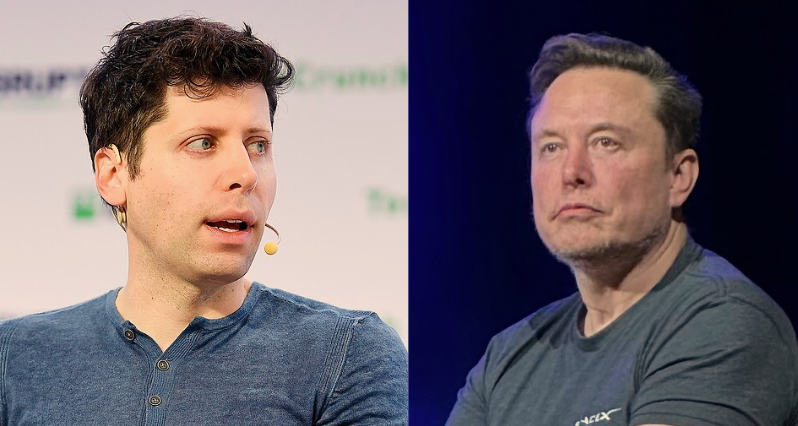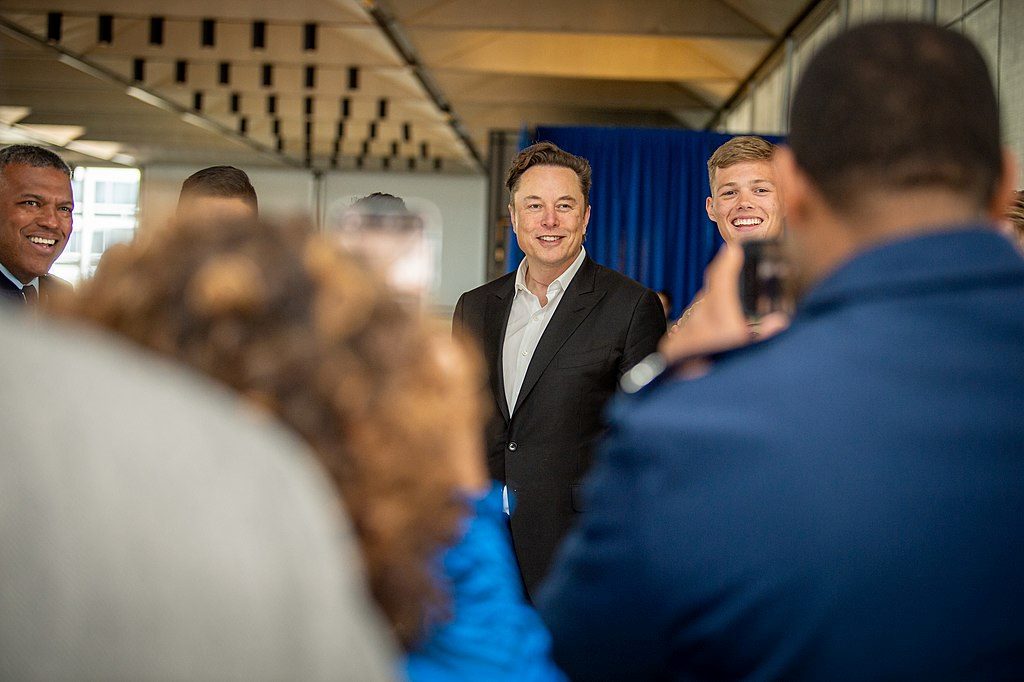Elon Musk has thrown down the gauntlet with a $97.4 billion bid to take over the nonprofit overseeing OpenAI, the powerhouse behind ChatGPT.
But if Musk expected this to be an easy win, he’s likely in for a reality check. OpenAI CEO Sam Altman didn’t hesitate to brush off the offer, telling reporters he’s not taking it “particularly” seriously, and posting on Twitter that “we will buy twitter for $9.74 billion if you want.”
no thank you but we will buy twitter for $9.74 billion if you want
— Sam Altman (@sama) February 10, 2025
Altman, speaking with reporters in Paris on Tuesday during an AI development summit, suggested that Musk’s intentions may be less about reshaping OpenAI and more about slowing it down.
“I think he’s probably just trying to slow us down. He obviously is a competitor,” Altman told Bloomberg. He added, “I wish he would just compete by building a better product, but I think there’s been a lot of tactics, many, many lawsuits, all sorts of other crazy stuff, now this.”
A Billion-Dollar Standoff
The $97.4 billion offer was revealed Monday by The Wall Street Journal, which cited Musk’s lawyer Marc Toberoff. The offer reportedly came from a coalition that includes Musk’s AI venture xAI, venture capital firm Valor Equity Partners, Palantir co-founder Joe Lonsdale’s 8VC and Hollywood executive Ari Emanuel. If accepted, OpenAI could potentially merge with xAI, further integrating Musk’s AI ambitions across his sprawling business empire.
For Musk, who co-founded OpenAI with Altman in 2015 and left in 2019, this bid represents his most aggressive move yet in an ongoing feud over OpenAI’s direction. Musk has repeatedly criticized the organization’s shift from a nonprofit model to a capped-profit structure and its tight partnership with Microsoft, which has invested billions integrating OpenAI’s tech into its ecosystem. His statement to the Journal framed the bid as an attempt to restore OpenAI to its original mission: “It’s time for OpenAI to return to the open-source, safety-focused force for good it once was. We will make sure that happens.”
Related Article: After Musk's Lawsuit, No More Illusions About OpenAI
Why Musk’s Bid Could Complicate OpenAI’s Future
Musk’s offer couldn’t have come at a more critical moment for OpenAI.
The business is dealing with several massive funding efforts, including raising $40 billion at a $340 billion valuation and a $500 billion AI infrastructure initiative. The New York Times and The Wall Street Journal both reported that the offer could complicate OpenAI’s ongoing funding rounds, potentially forcing its board to weigh Musk’s bid against the need to maintain stability with existing investors such as Microsoft.
A hostile takeover of OpenAI could have far-reaching consequences — not only for its current leadership, but also for the businesses and developers that rely on its technology. Any shift in control could reshape OpenAI’s licensing models, pricing structures and research priorities, forcing businesses to reconsider their AI strategies.
Professor José Parra Moyano, research fellow at the Centre for Blockchain Technologies at the University College London and professor of digital strategy at the International Institute for Management Development, told VKTR that "A shift in control could upend the current AI ecosystem. Changes in licensing models, pricing structures or research priorities might force businesses using ChatGPT, DALL-E and similar tools to reevaluate their strategies, potentially prompting a move toward alternative solutions or in-house development to hedge against uncertainty."
Additionally, Musk’s legal disputes with OpenAI add another layer of tension. Altman alluded to the strain these lawsuits have created, calling them part of Musk’s larger strategy to slow down the business. But Musk’s legal team, led by Toberoff, has maintained that these efforts are necessary to enforce transparency and safety standards.

With Musk pledging to match or exceed any competing offers, the board may face significant pressure in the weeks ahead. But given Altman’s dismissal of the bid and the complex negotiations already in motion, the likelihood of Musk successfully taking control appears slim for now.
Musk’s Role in Government AI Policy Raises Questions
Elon Musk's involvement in the Trump administration, particularly his leadership of the Department of Government Efficiency (DOGE), has significant implications for the current dynamics surrounding OpenAI.
Appointed by President Trump, Musk's role focuses on streamlining federal operations, including the integration of artificial intelligence into government functions. This position not only amplifies his influence over national AI policy but also intersects with his private ventures, such as xAI.
The tension between Musk and OpenAI CEO Sam Altman is further complicated by their differing stances on government-led AI initiatives. For instance, Musk has publicly criticized the administration's $500 billion Stargate AI infrastructure project, a venture that Altman supports. This discord shows a broader ideological divide: Musk advocates for a cautious approach to AI development, emphasizing safety and ethical considerations, while Altman is more inclined toward rapid advancement and large-scale implementation.
Given Musk's dual role as a government official and a private tech entrepreneur, his bid to acquire OpenAI raises questions about potential conflicts of interest and the future direction of AI development in both the public and private sectors. Businesses using AI technologies should monitor these developments closely, as shifts in leadership and policy could impact regulatory environments, funding opportunities and the overall direction of AI innovation.
Beyond the immediate business implications, Musk’s growing influence in AI policy raises ethical and regulatory concerns. His leadership of DOGE puts him in a unique position to shape AI regulations — at the same time he’s trying to seize control of one of the most powerful AI firms in the world.
Moyano told VKTR, "Everything about Elon Musk these days is a conflict of interests. His influence in AI policymaking, combined with ambitions to steer a major AI organization, will skew regulatory frameworks to favor his ventures."
Related Article: New AI Policies From Biden: What They Mean for the US and the World
Implications for Businesses Using AI
For businesses already relying on OpenAI’s technology — whether through partnerships with Microsoft, integrations with Azure or direct use of products such as ChatGPT — the uncertainty surrounding Musk’s bid could be a cause for concern.
If Musk were to succeed in taking control, a shift in OpenAI’s strategic priorities could follow, potentially disrupting product roadmaps, developer resources and long-term commitments.
Companies that have embedded OpenAI’s models into their workflows, such as using GPT-powered assistants for customer service or marketing automation, could face adjustments in service agreements or pricing structures. Businesses that have invested heavily in OpenAI’s technology as part of digital transformation initiatives may also need to monitor whether a Musk-led OpenAI would prioritize open-source, freely available tools over enterprise-grade AI services.
However, Musk’s pledge to refocus OpenAI on safety and openness could appeal to businesses seeking greater transparency in AI development. At the same time, competitors like Anthropic, Google DeepMind and even Musk’s own xAI could see this uncertainty as an opportunity to lure away enterprise clients.
The Bigger Picture: Competing Visions of AI
"It is paradoxical that Musk advocates for open-source ideals while his own venture (xAI) uses proprietary, enterprise-driven research with a clear for-profit, for-influence goal."
-José Parra Moyano
University College London
At its heart, Musk’s bid highlights a major rift over AI’s future. Musk’s vision ties back to OpenAI’s original mission of open-source and safety-first development, while Altman’s leadership focuses on rapid innovation and enterprise growth, backed by major investors like Microsoft.
Moyano emphasized, "It is paradoxical that Musk advocates for open-source ideals while his own venture (xAI) uses proprietary, enterprise-driven research with a clear for-profit, for-influence goal. This move probably responds to Musk’s animadversion about Sam Altman."
For businesses, this isn’t just a philosophical debate — it could affect product access, regulatory outlooks and competition in the AI marketplace. While competitors such as Anthropic and DeepMind may see this uncertainty as an opening, Musk’s government influence could nudge AI policy in new directions.
